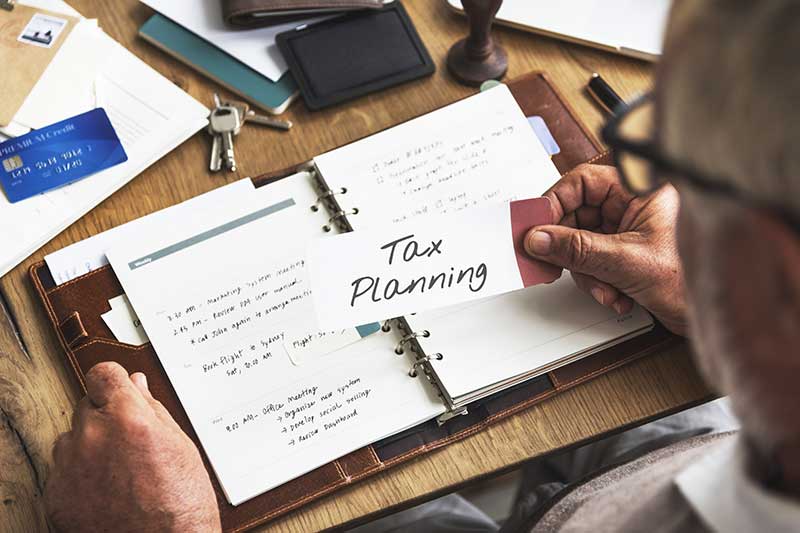5 MinsJune 08 2020
A job well begun is a job half done. If you are the kind who waits till the end of the financial year to start your tax investments, try a different approach this year. Start early to avoid last-minute hassles. By choosing the right kind of investment
products you can save tax as well as earn good returns.

Besides, since the Union Budget 2020 introduced an optional New Tax Regime for individual assesses (and Hindu Undivided Families), you need to understand which one is better for you and plan accordingly. Let us see how.
Choose the tax regime at the beginning of the financial year
The New Tax Regime offers lower income tax rates but does not allow any exemptions or deductions, including standard deduction. If you wish to avail of a host of exemptions and deductions otherwise available under various provisions of the Income
Tax Act, you have the option to choose the Old Tax Regime. But a condition for choosing between the Old and the New Tax Regime is that the taxpayer should not be earning business income.
[Also Read Income Tax Slabs for 2020-21]
So, effectively the option of the Old Tax Regime and New Tax Regime is available mainly to salaried income earners and pensioners. And the option
can be exercised only once a year. Hence, the earlier you do it, the better it is.
Why you should invest in tax-saving instruments early
Key benefits of engaging in a tax planning exercise early include:
- You can choose suitable tax-saving investment instruments under Section 80 in congruence with your risk profile, broader investment objectives, financial goals, and time horizon. This will enable you to complement tax planning and investment
planning. With sufficient time in hand, you can optimally and holistically save tax and have better control over your finances.
- In case of instruments such as Equity Linked Savings Schemes, you will get ample time to understand details of the funds such as returns, fund manager’s track profile, fund’s portfolio, etc and make a choice accordingly. Since
the lock-in period is three years, you need to be careful in selecting a fund. Even in the case of life insurance, which is a long-term product, you can take time and select one that matches your needs. This way you can avoid the hassle
of trying to exit the investment mid-way in case you find it is not suitable for you.
- If you don’t have the entire money to invest upfront, you can invest throughout the year. Instruments such as ELSS and Public Provident Fund allow you to invest
regularly, every month. Besides, you will also gain from the power of compounding. Each instalment you invest (assuming you invest monthly) gets added to the earlier instalment and earns higher returns over the long term.
Look beyond tax benefits available under Section 80 C
While the various heads for tax planning under the purview of Section 80 C are fairly well known, there are other heads under which you can claim tax exemptions. These serve various needs such as health care, education, savings, investment, philanthropy,
and so on. Make sure you utilise all of them to get maximum benefit. Some of these are:
- Health related - Section 80D Payment of medical insurance premium; Section 80DD Maintenance including medical treatment of a handicapped dependent and Section 80D Expenditure incurred on your medical treatment;
- Education - Section 80E Repayment of loan taken for pursuing higher education
- Investment in real estate - Section 80EE for first time home buyers to avail an additional tax benefit of Rs 50,000 and Section 24(b) interest paid on the home loan.
- Savings -Section 80TTA for deduction for interest on savings bank account; Section 80TTB for deduction for senior citizens
age 60 and above on interest earned from bank deposits, post office deposits, and interest on deposits with co-operative
society;
- Philanthropy - Section 80G Donations to certain funds and charitable institutions;
For whom is Old Tax Regime beneficial?
Whether to opt for the Old Tax Regime or the New Tax Regime will entirely depend on a case-to-case basis. But broadly, if your gross total income is high (without business income), have a home loan,
and want both wealth creation and tax-saving; then it makes sense to go with the Old Tax Regime [where various deduction under Section 10 and deductions under chapter VI-A of the Act i.e. under Section 80] can be availed. Similarly, individuals
over 60 years of age, can expect more relief under the Old Tax Regime if the gross income is up to Rs 5 lakh.
Make a conscious effort to start your tax planning exercise right at the beginning of the new financial year, and choose your options sensibly. Procrastinating will only result in sub-optimal tax saving, rather than holistic tax planning. Remember,
holistic tax planning leaves you with a higher disposable income and enhances your purchasing power.
Disclaimer: This article has been authored by PersonalFN, a Mumbai based Financial Planning and Mutual Fund research firm. Axis Bank doesn't influence any views of the author in any way. Axis Bank & PersonalFN shall not be responsible for any direct / indirect loss or liability incurred by the reader for taking any financial decisions based on the contents and information. Please consult your financial advisor before making any financial decision.











